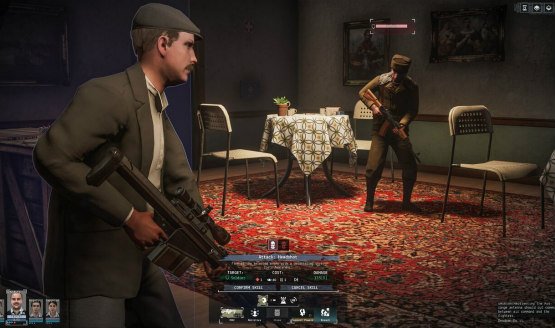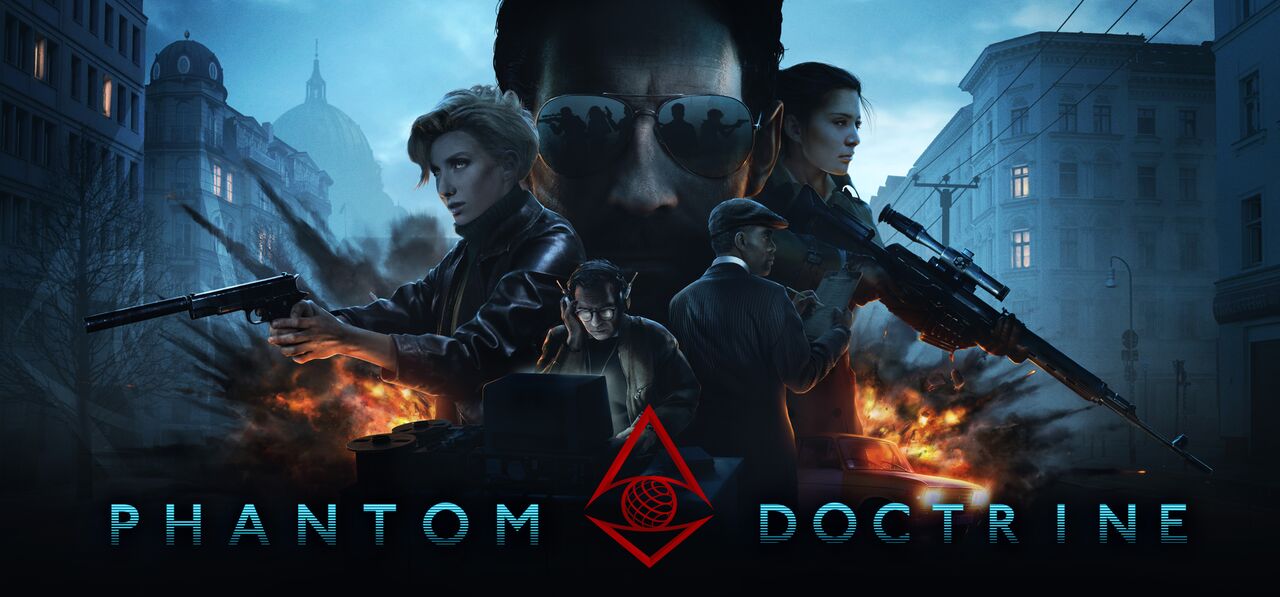
The shady, adventurous life of spies will never be boring. We are folks who crave escapism and creative action in our entertainment. There’s nothing that hits the spot like watching someone way smarter and more good-looking than us take down the bad guys.
Mix that with the very real world drama of the Cold War in the 80s—where no one was sure if they’d make it out of the decade un-nuked—and the legend of the spy soars. Phantom Doctrine lives in that legend, telling an alternate history story about a rogue intelligence agency, the Cabal, and their quest to eliminate hostile global entities looking to profit from the military stand-off between NATO and the Soviet Union.
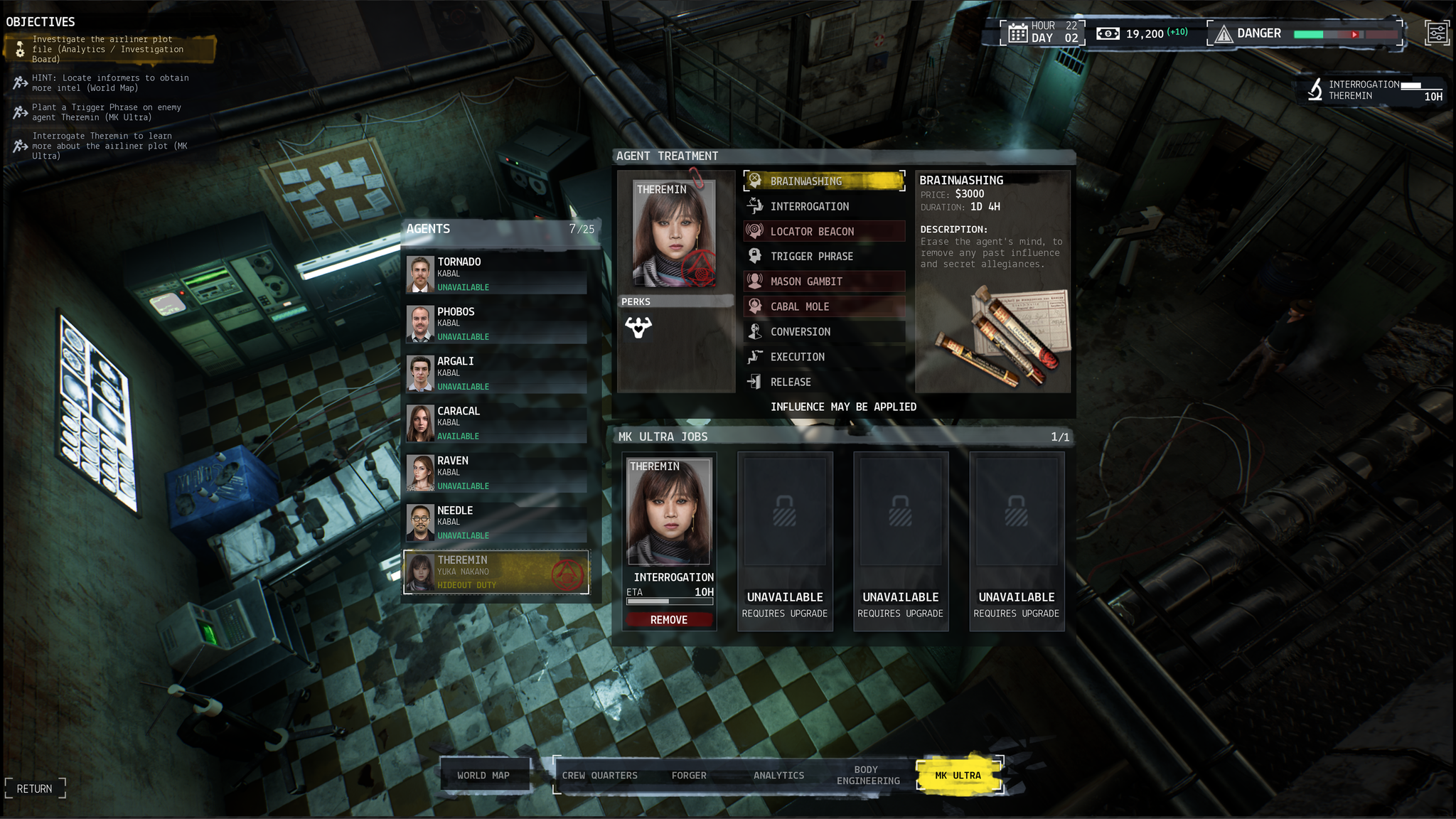
As a muddier, more morally iffy take on the genre, it’s visually mobbed with dark hues. Every mission seems to take place at night, which doesn’t hide the lack of detailed textures vehicles, buildings, and clothing. But the simplicity of the character models gives the game a distinctly disciplined feel. These characters are supposed to be identifiable, but not memorable. They’re spies, after all.
Character creation involves choosing which shady government agency you work for. The American CIA and the Russian KGB are your only options initially, with an unlockable third faction. After that, you’re whisked away to a character editor that seems robust for this sort of game. It may be underwhelming for folks very into character creators, though.
Soldier, Spy
Turn by turn, you will navigate each mission like a round of XCOM, but with far more tiptoeing. Action Points determine how much moving and sneaking and hacking you can do, while Fire Points regulate your offensive measures. Every time a character takes actions, their Awareness goes down. Awareness serves as a tangible meter to gauge your agent’s ability to avoid danger, especially from incoming bullets.
I found this as an effective way to add an element of risk-reward to each move. Even if one of my characters had enough Fire Points to go on a rampage, I played it cool. Everything I did was a reminder that it was getting much easier to make me pay for it. Awareness is a super important function because unlike, say, XCOM, there is no random chance to hit. You will always do minimum damage (that can be mitigated by armor or cover) so long as you have Awareness. Otherwise, you always do maximum damage. It can be the difference between a slick escape and a violent death. It’s a concept that’s simple in theory, but can become a bit swampy when things get out of hand.
The act of turn-based shooting often feels like a more granular version of the Firaxis system. Action and Fire Points aren’t static and you can alter them with upgrades. Many weapons have multiple firing modes. They’re are different types of overwatches—commands that allow agents to survey the area and shoot at who ever runs through it. The task of assessing each’s value at every tactical crossroads can be daunting at first. Eventually, you’ll find that doing anything besides going full auto in a combat scenario is rarely the best option. Im all for diversity of options and playstyles, but this felt like you have nothing but a box of super specific tools, next to a very big hammer. It gets hard not to hammer.
You spend a great deal of missions on the ground avoiding combat, though. Mostly, you’ll be slinking around high security places, looking for specific intel or to take down particular targets. More than once will you take a mission where you’ll be in disguise, waiting for to be caught slipping. At the very least, combat often feels like getting “the bad ending” of a mission, even when it seems inevitable.
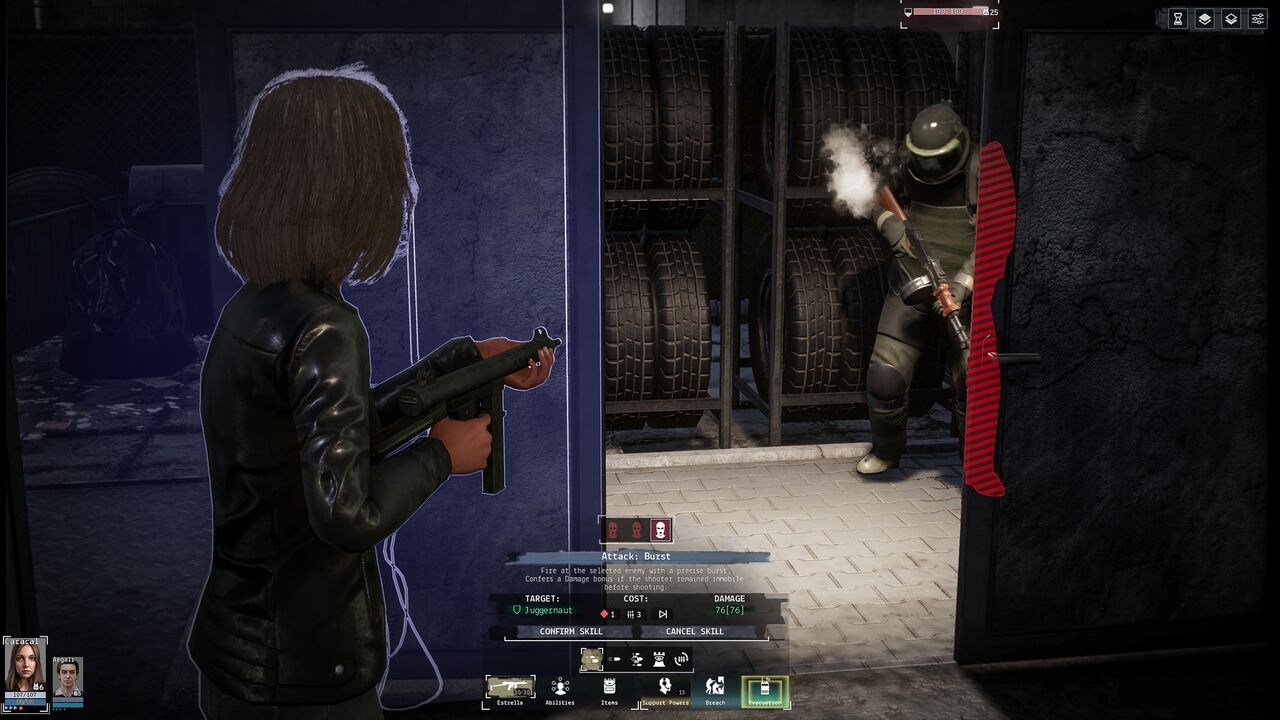
The tactical espionage bits tend to only be available as options in missions if you’ve done the proper diligence beforehand. When you’re at your headquarters, you can study the intel you’ve stolen from missions, gotten as rewards, or have otherwise obtained, to sort out the facts of the particular cases you have going on. This means recreating those famous images (or Always Sunny memes) of operatives in front of a cork board, tying pinned pictures together with yarn to make connections shady figures. It’s a task of reducing documents down to keywords and matching those keywords across documents to earn more intel. There isn’t much actual detective work, but it does a good job simulating it.
The Identity Crisis
In fact, when it comes to nailing the Cold War spy thriller vibe, Phantom Doctrine succeeds almost every chance it gets. This is in spite of the inconsistent acting, cheesy accents, and run of the mill story. It touches every espionage thriller trope, from The Bourne Identity to Sicario, most of the time attempting to stay grounded, while other times edging towards Invisible Inc. or CounterSpy levels of “out there.” Your agents comically karate chopping bad guys in the neck for stealth takedowns a la the Mission Impossible TV show sort of flair to the dirty deed that is much appreciated.
This “spy feel” plays right back into the mission structures in a satisfying way. If you haven’t been doing research, you won’t have new leads to follow. On your HQ’s world map, cities in your area begin to pop up as potential hotbeds for enemies. Flying your agents to these to intervene can prevent things from becoming an issue, or at least put you in a good position to learn about the growing threat in that area. As problems get bigger and bigger, you’ll get opportunities to do field work. Do enough intel gathering, and when it becomes time to actually lead a ground operation, you can do so with tactical options like deploying in disguises, or with special intel gathering abilities.
If you don’t challenge these hotspots, your enemies will grow in strength. The “Danger” meter marks their growing influence, and a full meter shows when enemies have wind of your base, and they will lay siege to you if you’re careless. The race to balance multiplying issues with scarce resources is an attempt at that Enemy Unknown sort of panic porn that dominated the strategy scene in 2012. It works, but not as well.
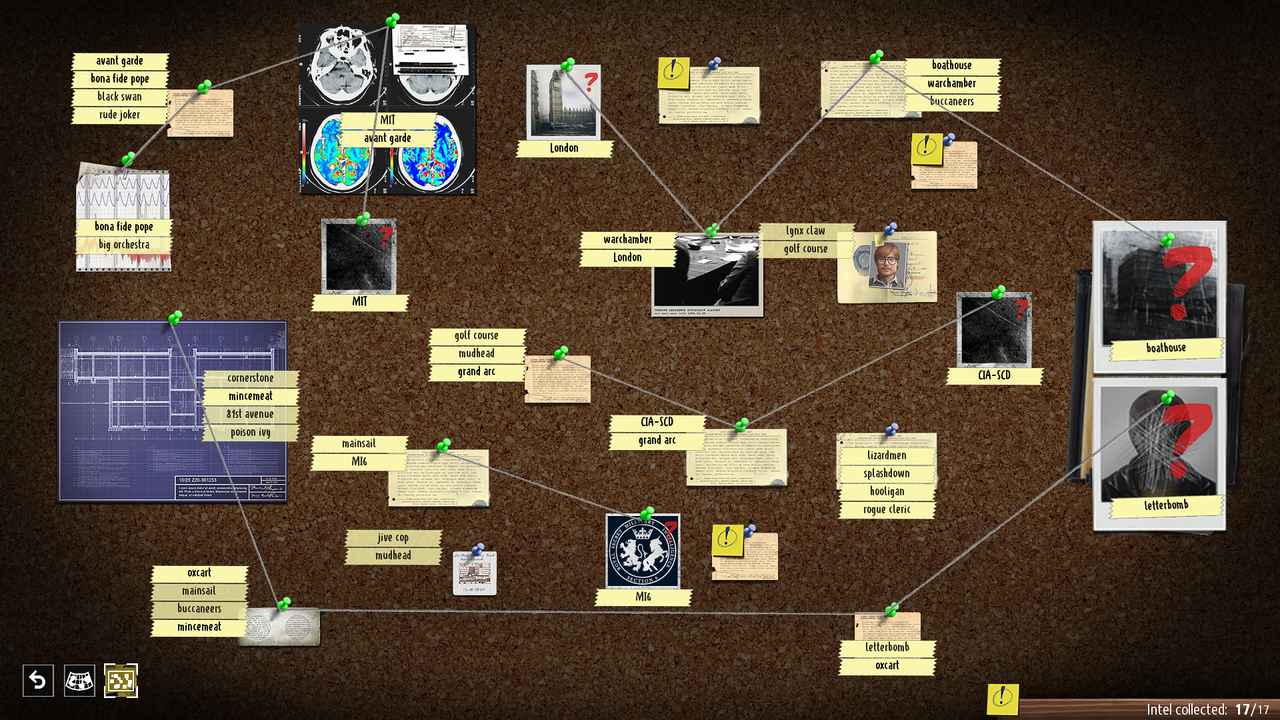
Agent upgrades and research options are poorly presented in Phantom Doctrine. In many cases, they don’t seem to have the immediately noticeable benefits of games of its ilk. There are no strict classes among your agents, which is both gift and curse. You can outfit them as you see fit, and they all have their own unique collection of perks they can learn, languages they know, and training available to them. As you clock in the hours, you begin to form these character’s mechanical identities, but during the first few missions, anyone who isn’t you isn’t special.
The Looking Glass Game
You can assign characters who aren’t on field missions to special training. Here, they learn to specialize in certain firearms, or can craft themselves helpful tools like lockpicks or stun grenades. But these things take immense amounts of time, and I hadn’t had the opportunity to hire more agents until well into the game. The value proposition of having an agent spend a day crafting vs having them spend that day stopping terrorism never swung in the favor of the lockpicks.
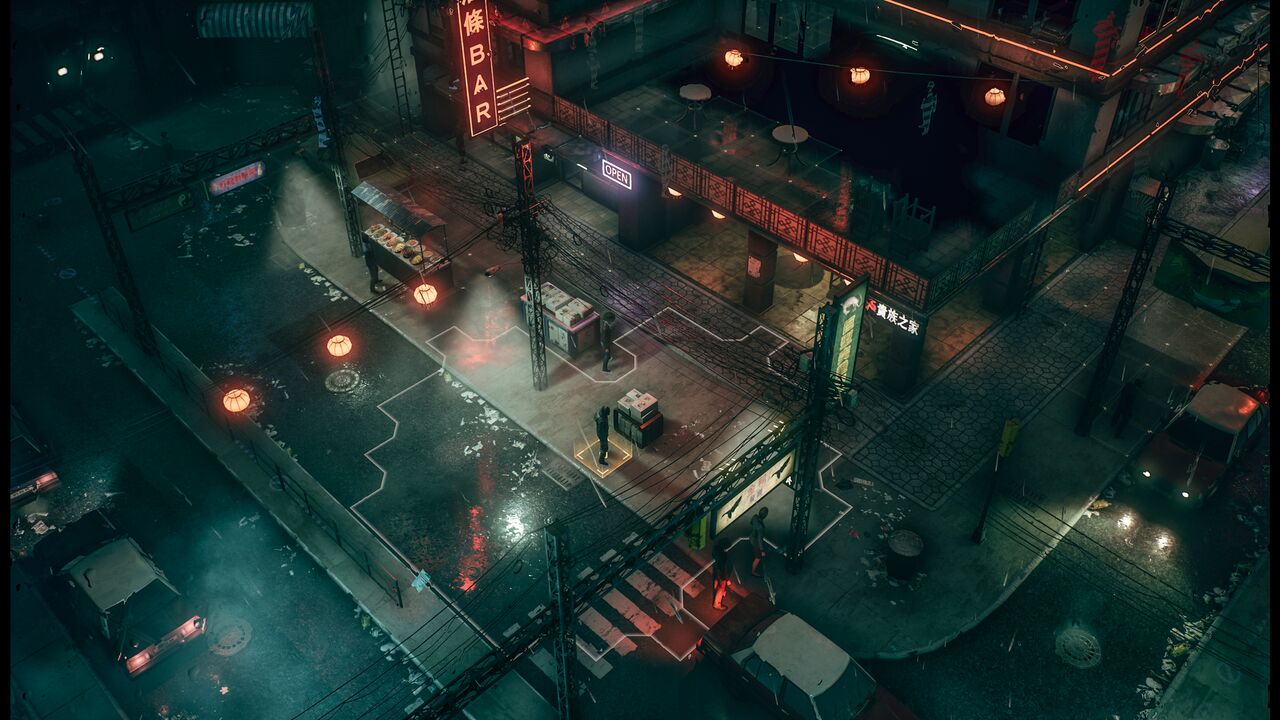
The tactical action is sound, but the AI of the bad guys can be really dumb. If you don’t walk into the strict definitions of their vision cones, they don’t see you, even if you end a turn standing right next to them. If their predispositioned patrol path doesn’t have them looking your way, they can leave the area without ever paying you any attention. It’s silly at best, down right broken at the worst. It’s also in your favor, so maybe it isn’t the worst thing.
All in all, Phantom Doctrine is good tactical action game with a great spy culture motif. It’s perfect for people who like their spy stories grounded in reality, but also appreciate the subtle approach to world dominating super criminals introduced by modern Bond films like Spectre. CreativeForge succeeds at taking lessons from its previous game, Hard West, and updating the formula. Even if that formula is ultimately a less elegant, less original version of the most popular game in the genre.
Phantom Doctrine review code provided by publisher. Version 1.01 reviewed on a PlayStation 4. For more information on scoring please see our Review Policy here.
-
Nails the 80s spy fiction atmosphere
-
Clever use of investigative imagery as a mechanic
-
Combat is fair and fairly straight forward
-
Combat can get a bit too granular
-
Spotty acting
-
Lackluster detail in the visuals
Phantom Doctrine Review
-
Phantom Doctrine1
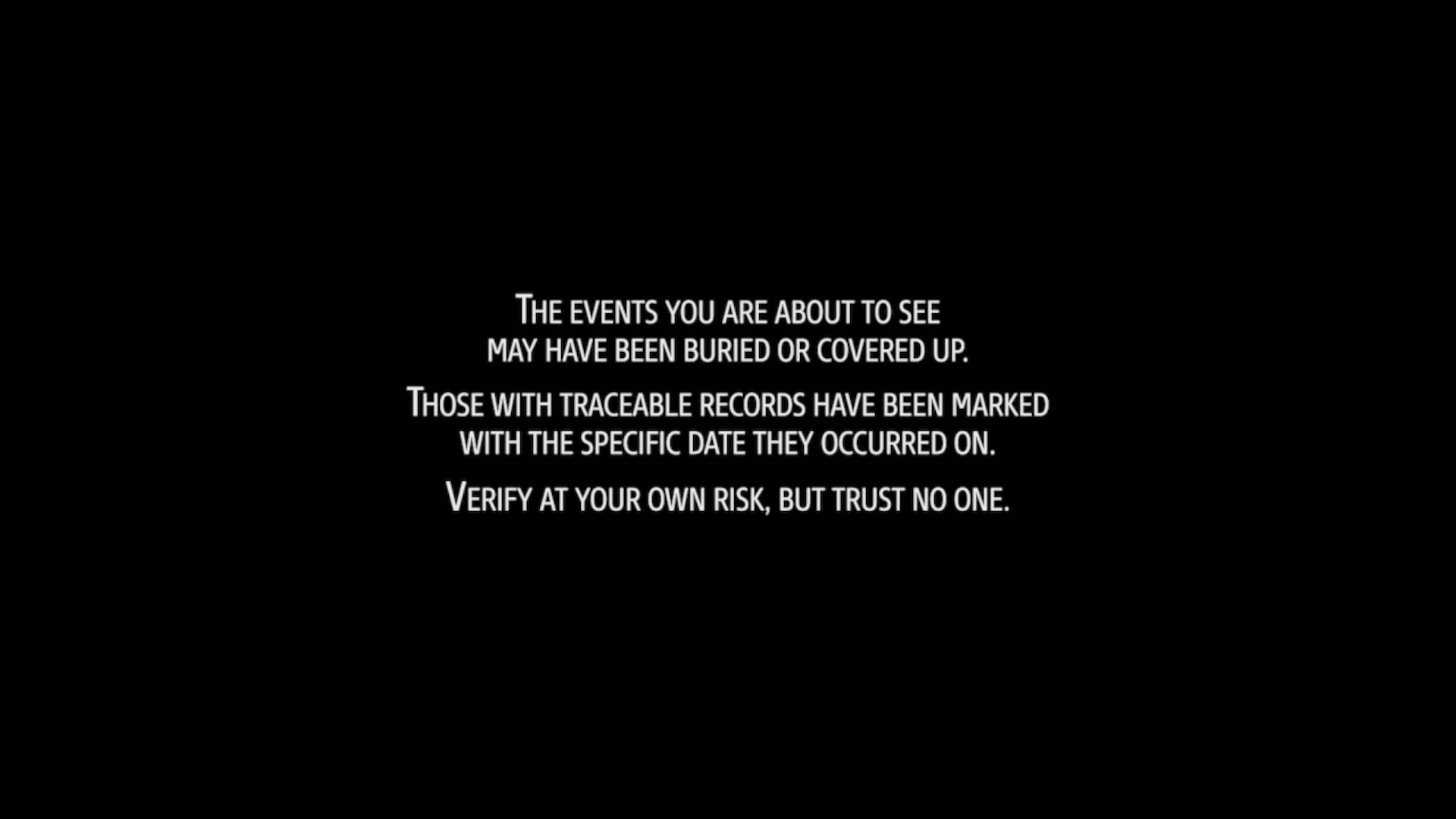
Trust no one.
-
Phantom Doctrine2
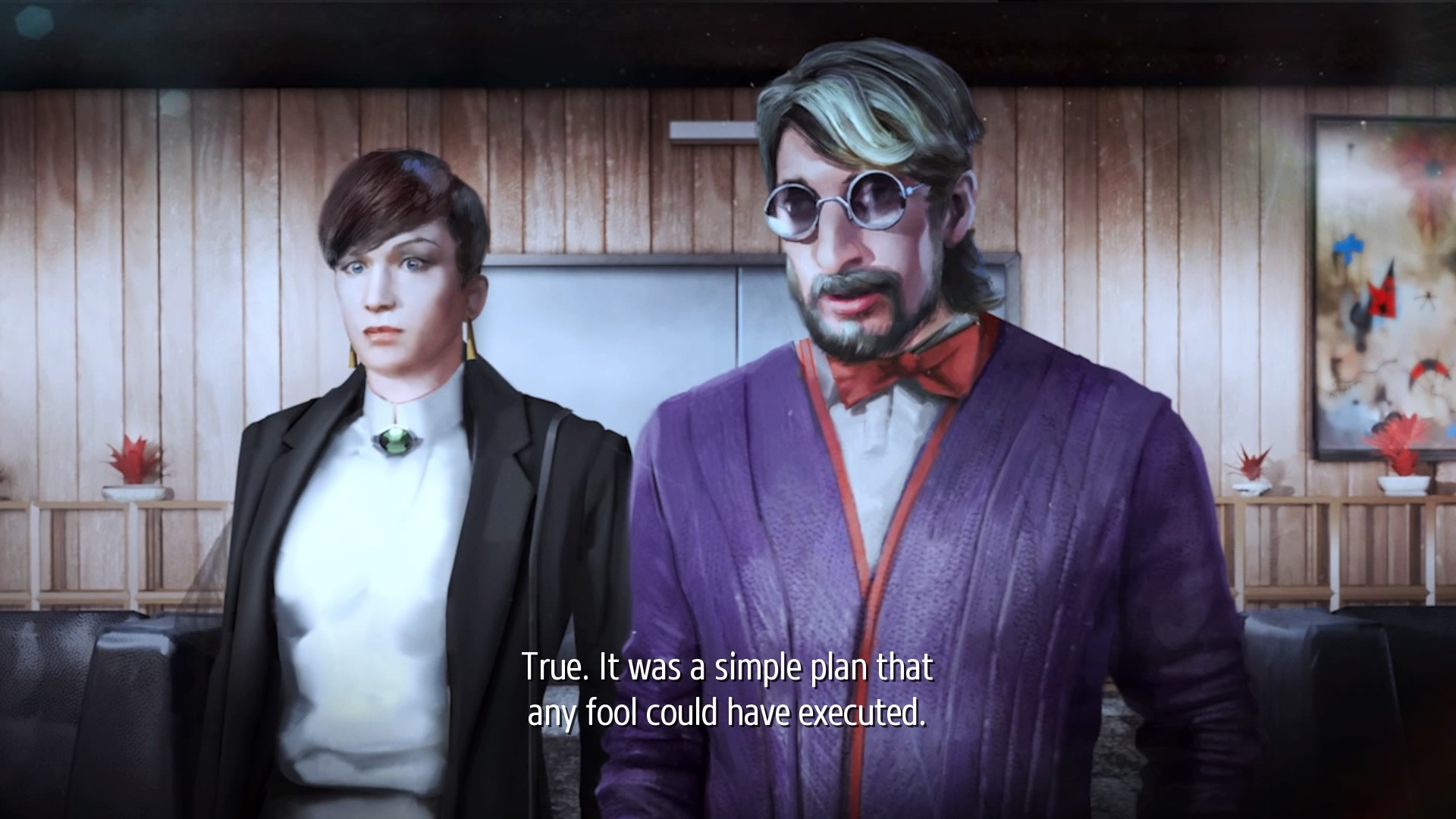
Shady, colorful characters.
-
Phantom Doctrine3
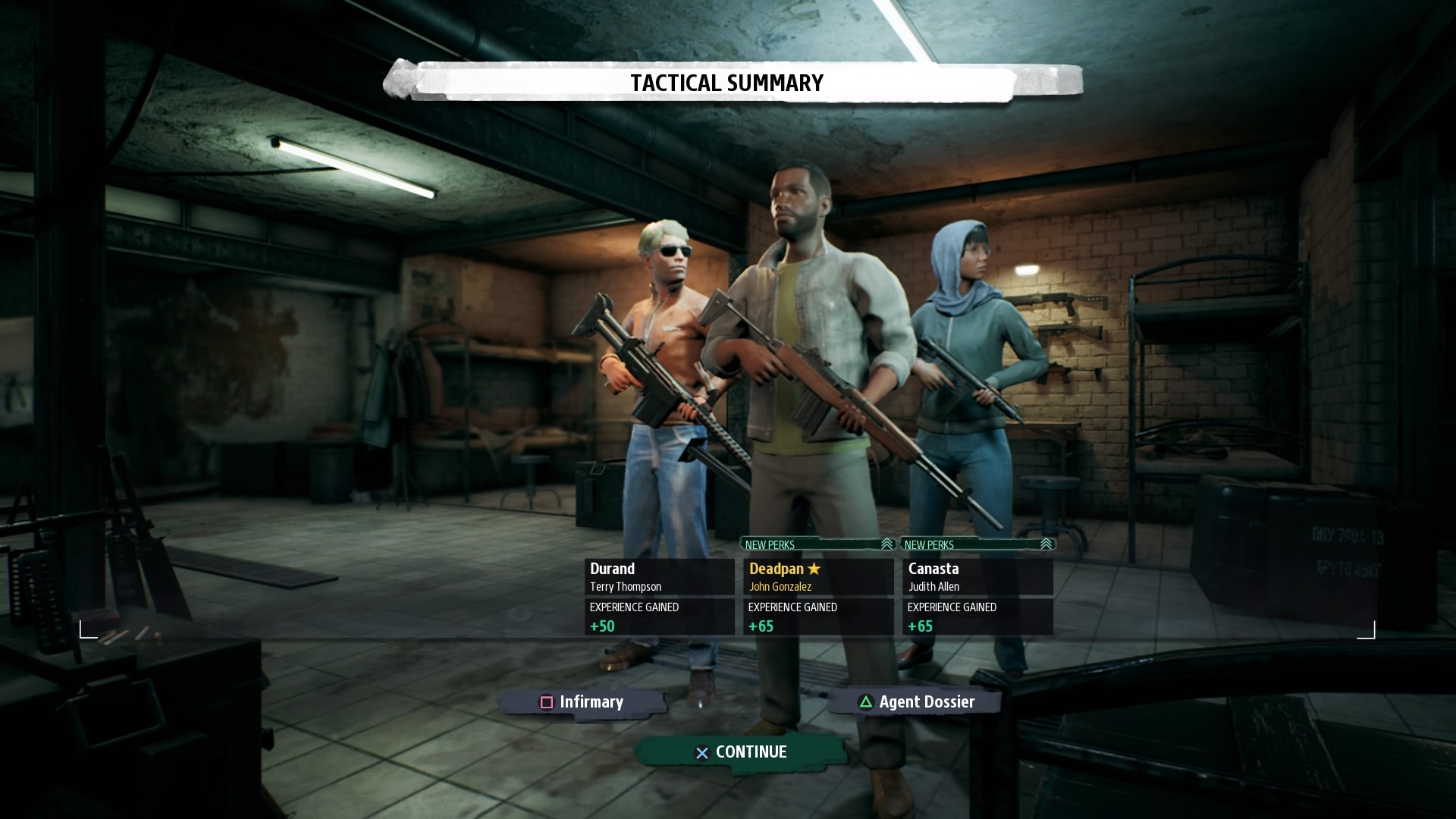
Tactical squad.
-
Phantom Doctrine4
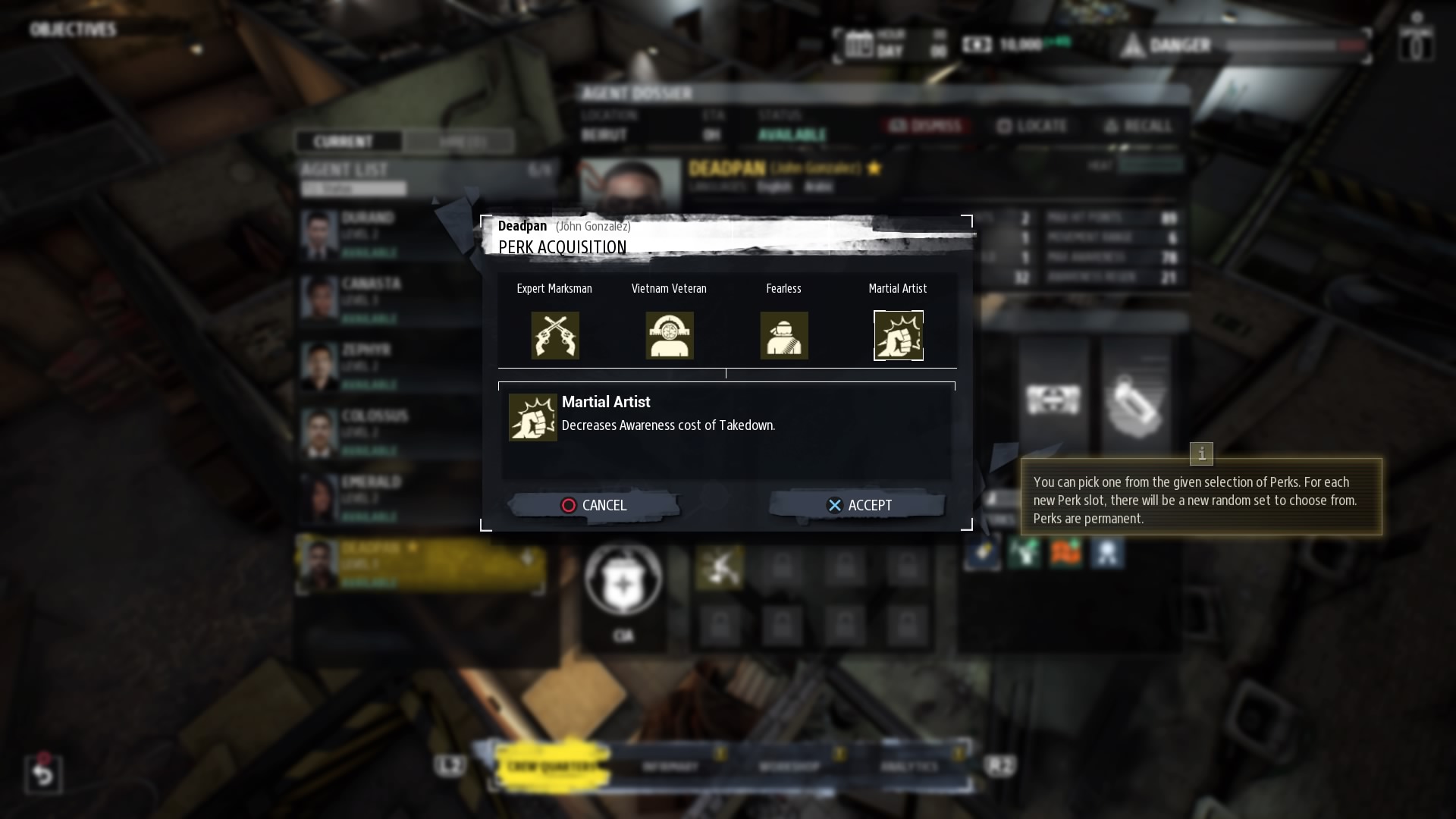
Perks give agents flexibility.
-
Phantom Doctrine5
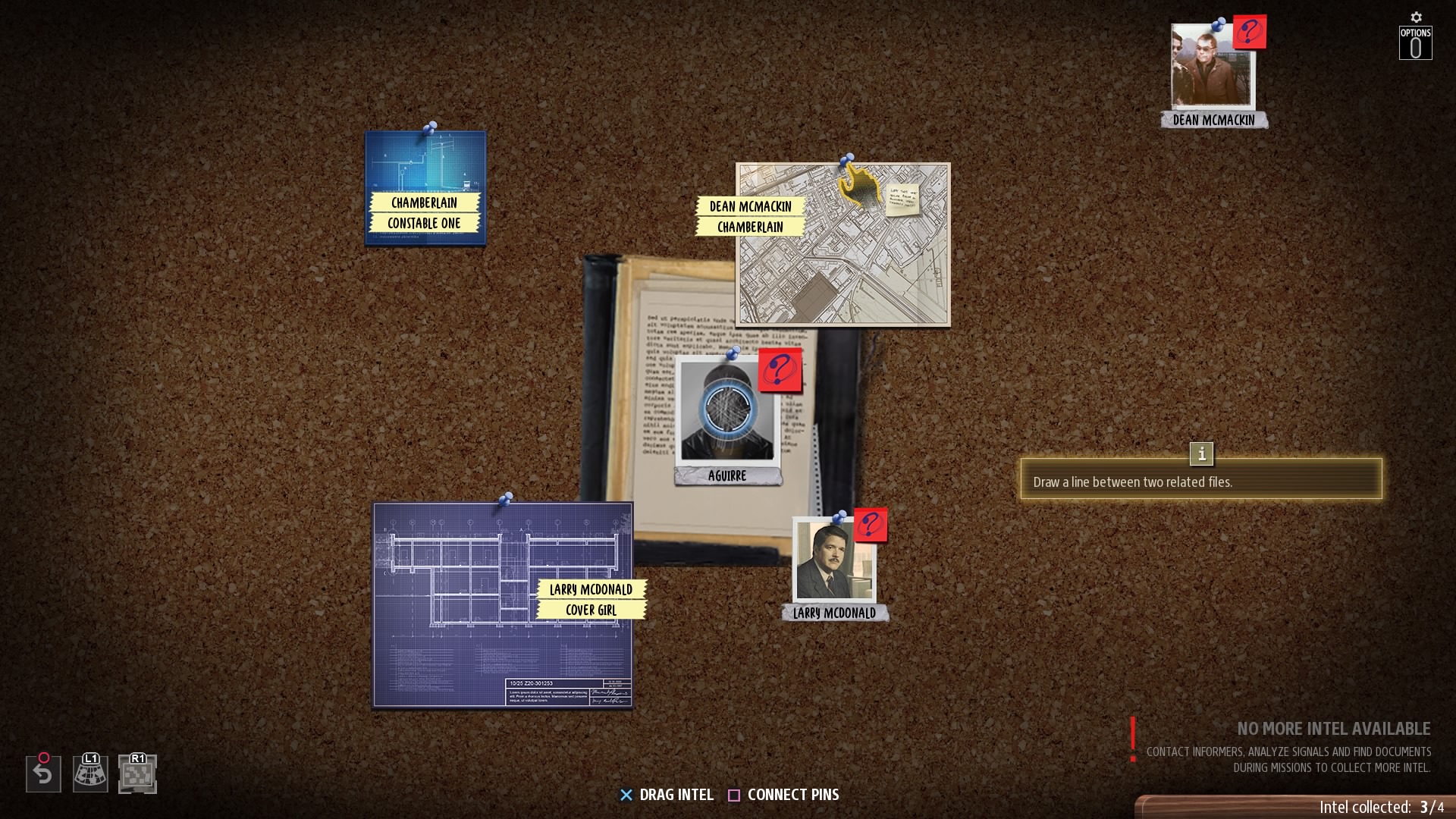
Investigations can get deep.
-
Phantom Doctrine6
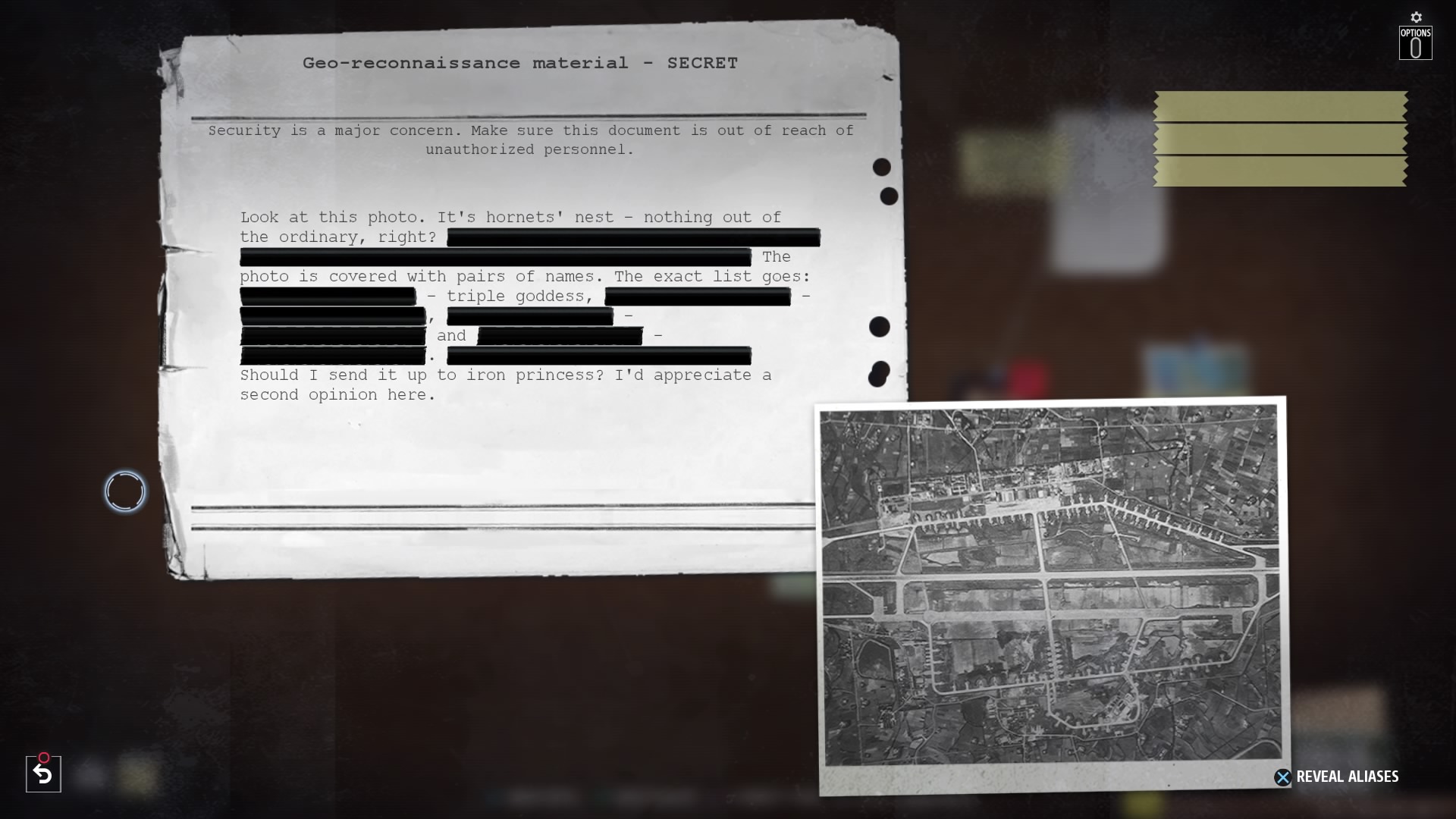
Redacted documents still hold valuable information.
